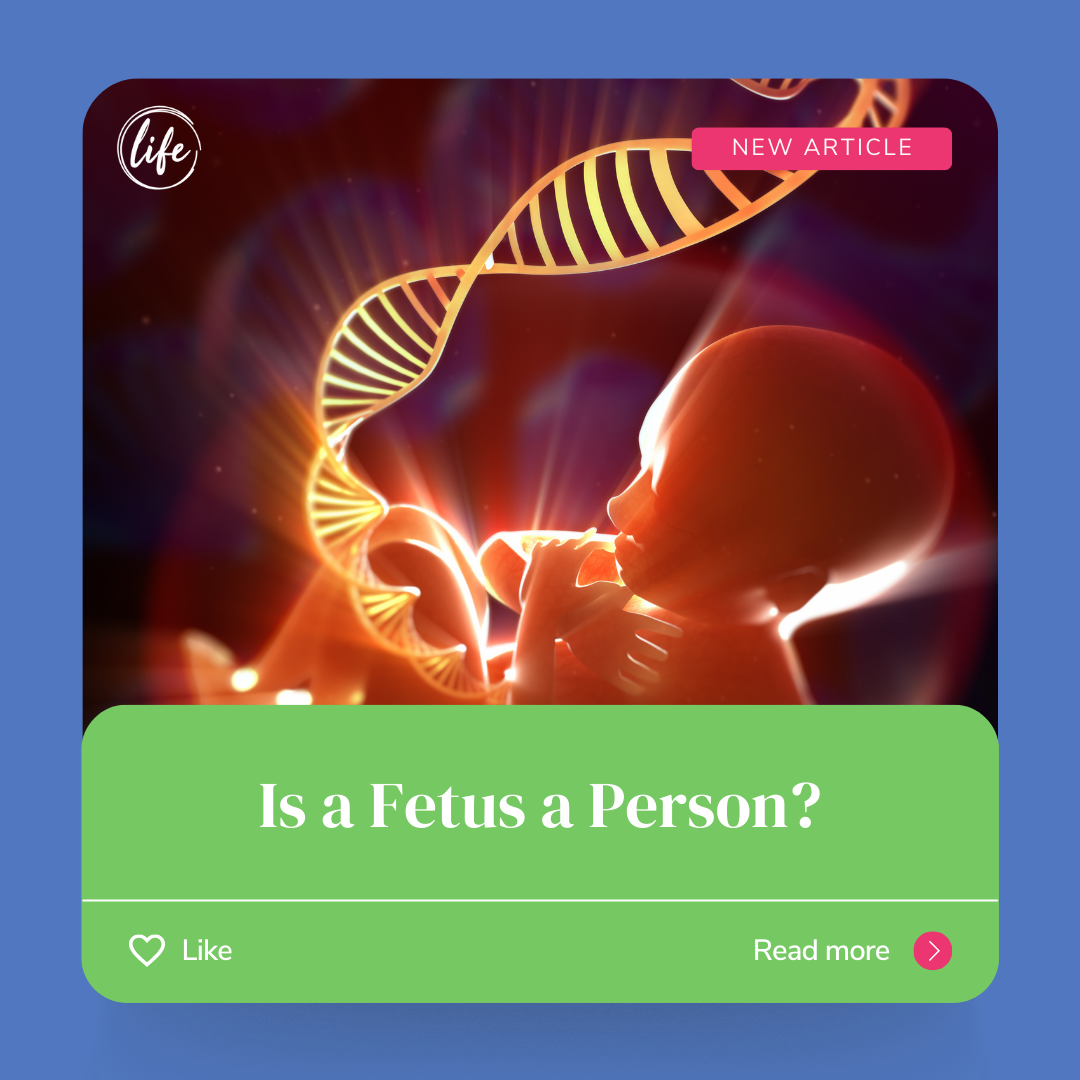
Choice advocates often pose the question, “Is a fetus a person?” The “personhood” argument asserts that a fetus’ life does not hold the same value as the lives of those living outside the womb, simply because the fetus relies on its mother for survival. This couldn’t be further from the truth! Valuing one life over another is the very basis of oppression. Let’s break down the discrepancies in the “personhood” argument:
What is a Person?
Before we can analyze “personhood”, we must first define what a “person” is. The Oxford English Dictionary defines “person” as “an individual human being; a man, woman, or child.”

Here’s what we know about fetuses:
1) When a human woman and a human man sexually reproduce, they are only capable of creating one thing: a human fetus. Fetuses are genetic human beings.
2) Though they rely on their mothers for survival until they reach medical viability at about 22-24 weeks in utero, fetuses are individuals from conception. At conception the sperm and egg unite to form a new, unique human being with its own separate DNA. The DNA genetic code will not only identify the new person as a “human” but will identify that specific human from conception on.
Human vs. Person
Choice advocates argue that there is a distinction between a “human” and a “person” — that while a fetus may very well be genetically human, it is not a person. Pro-choicers state that “human” is the species, while “person” refers to one’s individuality and ability to survive independently of another.
However, this contradicts what we know about fetuses being “individual human beings” — unique and separate from that of their parents. This rather convenient distinction allows choice advocates to devalue life for the sake of protecting a woman’s “bodily autonomy.”
Independent Survival
Independent survival is a huge talking point in the personhood argument because fetuses rely solely on their mothers for nourishment for months before they are born. Therefore, choice advocates deem unborn babies less valuable.
However, the unborn are not the only vulnerable population that rely on others for survival. Toddlers and young children still rely on their parents for survival; is a child not a person simply because they are dependent? The elderly often require assistance and support as they decline with age; do we lose personhood with age? Those involved in tragic accidents sometimes require medical life support to survive their injuries; do we lose personhood when our health declines?
We cannot simply deny or revoke personhood on the basis of independent survival. When we deny personhood, we are denying the obvious presence of life and violating one’s constitutional right to life.
Learn more about the various stages of fetal development (conception, first, second, and third trimester) and don’t forget to follow us on social media (Facebook, Instagram, and TikTok).